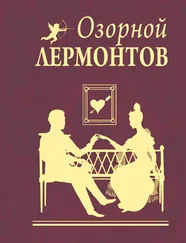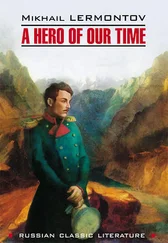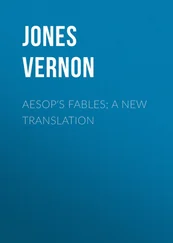He is fairly sharp: his epigrams are often amusing, but they are never well-aimed or wicked. He will never slay a person with one word. He doesn’t know people and their weak strings because he has been occupied with himself alone for his whole life. His goal is to be the hero of a novel. He has so often tried to convince people that he is not of this world but is doomed to some sort of secret torture, that he has almost convinced himself of it. This is why he so proudly wears his heavy soldier’s greatcoat. I have seen through him, and for this he doesn’t like me, even though on the exterior we have the most friendly of relationships. Grushnitsky has a reputation for being an excellent brave. I have seen him in action. He waves his saber, cries out, and throws himself forward, with screwed up eyes. This is something other than Russian courage!
I don’t like him either: I feel that one day we shall bump into each other on a narrow road and it will end badly for one of us.
His arrival in the Caucasus was the consequence of just such romantic fanaticism. I am sure that on the eve of his departure from his father’s village he was telling some pretty neighborhood girl with a gloomy look that he was going not just to serve in the army but that he was in search of death, because… and then he, probably, covered his eyes with his hands and continued: “No, you mustn’t know this! Your pure soul will shudder! And why would I? What am I to you? Do you understand me?” and so on.
He himself has told me that what induced him to join the K—regiment will remain an eternal secret between him and the heavens.
However, during those moments when he drops his tragic mantle, Grushnitsky is rather charming and amusing. I am curious to see him with women: here, I think, he will apply himself!
We greeted each other like old friends. I started to question him about the way of life at the spa and about its noteworthy personages.
“We lead a fairly prosaic life,” he said, exhaling. “Those who drink water in the morning are sluggish, like all ill people, and those who drink wine in the evenings are intolerable, like all healthy people. There is female company but they don’t provide much consolation: they play whist, [2] whist: A trick-taking card game played by four players. It was popular in the eighteenth and nineteenth centuries.
dress badly, and speak terrible French. This year, only Princess Ligovsky is here with her daughter, but I haven’t met them yet. My soldier’s greatcoat is like the stamp of an outcast. The sympathy it arouses is as oppressive as alms.”
At that moment two ladies walked past us toward the well: one was older, the other young and well-proportioned. I didn’t catch sight of their faces under their hats, but they were dressed according to the strict rules of the best taste: nothing extraneous. The second lady wore a high-necked dress in gris de perles, with a light silk fichu [3] fichu: A triangular scarf worn around the neck.
twisted around her lithe neck. Little boots du couleur puce were tightened at her ankle, and her lean little foot was so sweet that even those uninitiated into the secrets of beauty would unfailingly have exclaimed “ah!”—even if only in surprise. Her light but noble gait contained something virginal about it that escaped definition, but it was decipherable to the gaze. When she walked past us, an indescribable aroma wafted from her, the kind that emanates sometimes from the letter of a beloved lady.
“That is Princess Ligovsky,” said Grushnitsky, “and with her is her daughter, Mary, as she is called in the English manner. They have been here only three days.”
“But you already know her name?”
“Yes, I heard it accidentally,” he replied, blushing. “I admit that I don’t want to be introduced. This proud nobility looks at us army-men like savages. And what is it to them whether there is a mind underneath this numbered military cap and a heart beneath this heavy greatcoat?”
“The poor greatcoat!” I said, bursting into laughter, “and who is the gentleman who is walking up to them and so courteously offering them a glass?”
“Oh! That is the Muscovite dandy Rayevich! He is a gambler: it is immediately obvious from the enormous gold chain, which coils around his light blue waistcoat. And what of the heavy walking stick—just like Robinson Crusoe! Yes, and his beard for that matter, and hair are à la moujik. ” [4] à la moujik: This means “in the peasant style.”
“You are embittered against the whole human race.”
“And for good reason…”
“Oh! Is that right?”
At that moment the ladies had walked away from the well and came up level with us. Grushnitsky managed to strike a dramatic pose with the help of his crutch and responded to me loudly in French:
“Mon cher, je haïs les hommes pour ne pas mépriser, car autrement la vie serait une farce trop dégoutante.” [5] “Mon cher, je haïs les hommes pour ne pas mépriser, car autrement la vie serait une farce trop dégoutante”: “My dear friend, I hate men in order not to despise them, otherwise life would be a most repulsive farce.” (French)
The pretty princess turned around and gifted the orator with a long and curious gaze. The expression of this gaze was very ambiguous but not mocking, for which I applauded her from my innermost soul.
“This Princess Mary is very pretty,” I said to him. “She has such velvet eyes—yes, velvet. I advise you to appropriate this expression when speaking about her eyes. Her lower and upper eyelashes are so long that the rays of the sun don’t reflect in her pupils. I love eyes that have no reflection; they are so soft, it’s as though they stroke you… However, it seems that everything about her face is pretty… But now, are her teeth white? This is very important! A shame that she didn’t smile at your magnificent sentence.”
“You speak about pretty ladies as though they’re English horses,” said Grushnitsky with indignation.
“Mon cher,” I replied to him, attempting to imitate his tone, “je méprise les femmes pour ne pas les aimer, car autrement la vie serait un mélodrame trop ridicule.” [6] “Mon cher, je méprise les femmes pour ne pas les aimer, car autrement la vie serait un mélodrame trop ridicule”: “My dear friend, I despise women in order not to love them, otherwise life would be a most ridiculous melodrama.” (French)
I turned and walked in the other direction. For about half an hour I wandered along the grapevine alleys, along the limestone ledge, and among the shrubbery that hung between them. It was becoming hot, and I hurried back. Walking past the sulfurous spring, I stopped at the covered gallery to catch my breath in its shade, and this provided me with the occasion to witness a rather curious scene. The central characters were in this arrangement: the elder princess sat with the Muscovite dandy on a bench in the covered gallery, and both were engaged, it seemed, in a serious conversation. The young princess, probably having drunk her last glass, was strolling pensively by the well. Grushnitsky was standing at the well itself; and there was no one else in the little square.
I approached and hid in a corner of the gallery. At that moment Grushnitsky let his glass fall in the sand and then tried to bend down and pick it up—but his injured leg was in the way. Poor thing! How he was contriving, leaning on his crutch, making vain attempts. His expressive face really did convey suffering.
Princess Mary saw all of this better than I did.
Lighter than a little bird, she ran up to him, bent down, lifted the glass and gave it to him in a motion performed with indescribable charm. Then she blushed terribly, looked back at the gallery and, having reassured herself that her mama hadn’t seen anything, calmed down immediately. By the time Grushnitsky had opened his mouth to thank her, she was already far gone. After a minute she came out of the gallery with her mother and the dandy, but assumed an air of utter propriety and importance as she passed Grushnitsky. She didn’t even turn, didn’t even notice the ardent look with which he long accompanied her, while she descended the hill and was eventually obscured by the linden trees of the boulevard… But then, her hat flashed on the other side of the street; she was running into one of the best houses of Pyatigorsk. The elder princess walked in after her and exchanged bows with Rayevich at the threshold.
Читать дальше
Конец ознакомительного отрывка
Купить книгу
![Михаил Лермонтов A Hero of Our Time [New Translation] обложка книги](/books/27671/mihail-lermontov-a-hero-of-our-time-new-translati-cover.webp)










